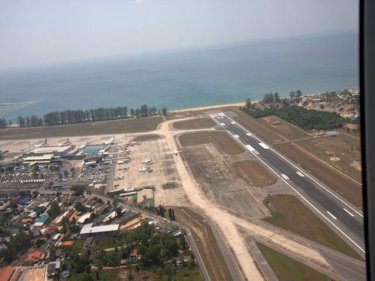PHUKET: Bali and Phuket have long been the two big holiday players in the South East Asian region. But both are now experiencing too much popularity.
Rapid development has brought rapid deterioration. Bali and Phuket are not coping easily with stressed infrastructure, garbage mountains, polluted water, and environments beseiged by developers and tourists.
This was the introduction to an article last month about Bali in the Jakarta Post:
''Pristine beaches and seas are now littered with plastic waste, footpaths and roads in several tourism areas are in dangerous states of disrepair, mountains near world heritage listed parks are being quarried out of existence, forests of billboards have replaced jungles, rivers are riddled with trash and traffic is almost at gridlock. Welcome to Bali 2013.''
With just a few minor changes, a similar paragraph could be written about Phuket. Contributor Trisha Sertori's article was headlined simply 'Tipping Point.'
And that about sums it up. Bali and Phuket are both racing towards the edge of the same cliff. The problem is that nobody can see that cliff, because the race is taking place in the dark.
There is no race plan, no strategy for still being able to attract tourists to a pleasant, natural destination in five, 10 or 20 years.
Voices of common sense are being heard on Bali, just as they are on Phuket. ''What Bali needs is all people to sit together and plan Bali's tourism into the future,'' says Sulasa Jaya of the Indonesian Hotel and Restaurant Association.
''Now it is growing like a wild horse as investors wait for rain to fall from the sky (manna from heaven). We need tourism, but not out of control.''
Similar utterances have come from people on Phuket, perhaps most frequently lately from Bhuritt Maswongsa, Vice President of the Phuket Tourism Association.
He's calling for a two-year moratorium on growth in tourism on Phuket so that Phuket infrastructure can catch up.
''The tourists need to be told it is going to happen,'' he told Phuketwan. ''They will continue to come. But unless Phuket catches up with its infrastructure needs, the best of times for Phuket tourism may be over.''
In many ways, the race is now on to see which of the two destinations can back away from the cliff fastest, and head in the opposite direction towards something called ''sustainable development.''
We don't think there's any such thing because everyone's definition of ''sustainable develpment'' is different. What really needs to be achieved is a balance with Nature.
That said, Bali and Phuket remain appealing holiday destinations. Both islands are stacked high with first-rate resorts and villa accommodation.
Both have diversified so that holidays are no longer all about the beaches and the coral reefs.
Yet the quality of the beaches and the reefs, the natural environment, remains the critical factor in where people go for holidays.
While Phuket's tourism numbers continue to rise year on year, Bali's numbers turned down in January.
Whether this is a response to rising problems with congested roads, garbage on the beaches, a less natural experience or a combination of factors, this year will probably tell.
The point is that the warning signs are there for Phuket, even if for the time being the alarms are only sounding in Bali.
The main advantage Phuket has over Bali is that while Phuket is smaller, it has Phang Nga and Krabi as neighbors and development in those provinces has been slower.
Odd as it may seem, the other advantage is the size of Phuket's airport. Bali is building bigger, larger airports to cope with greater numbers of tourists.
Some people may see this as an advantage. Right now, we don't think it is.
Not being able to grow beyond the capacity to handle 12.5 million arrivals and departures may yet prove to be the wisest decision that the managers of Phuket International Airport have failed to make.
That gives Phuket an upper limit on so called ''carrying capacity'' and future development. The way everything else is going, a crowded airport might turn out to be the best thing that ever happened to Phuket.





Well written, but I want to see the first land and resort owner who would actually start reducing room numbers, remove structures from illegally approached lands and let them turn back into the precious jungle it was once. Instead of what happens is: Every attempt to restore and protect some nature and every government action is starting with a big headline and disappearing silently within weeks.
Posted by Jakub on April 6, 2013 15:39
Editor Comment:
I don't think it works that way. But certainly, once the point comes where tourism to Phuket slows, it will become less attractive to investors. Meanwhile, the beaches, the reefs, the ''greentops'' and the parklands need to be properly preserved and protected.